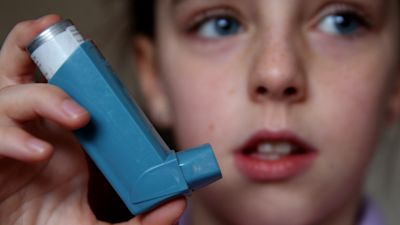'Wonder drug' injection for asthma sufferers approved for NHS use but will people get access?

A new injection hailed as a "wonder drug" for uncontrolled asthma has been approved for use on the NHS.
The National Institute for Health and Care Excellence (Nice) has recommended dupilumab for some patients whose asthma does not respond to conventional treatments.
Asthma UK and the British Lung Foundation Partnership welcomed the news, saying it would transform the lives of some patients.
How many people will the new drug help?
According to the charity, 200,000 people in the UK often battle with regular asthma attacks and emergency trips to hospital.
The criteria for accessing the drug includes only patients who have severe asthma with type 2 inflammation, who meet an inflammation threshold, have had at least four severe asthma attacks in the last year and are ineligible for other biological treatments.
However, the charity said current guidelines from Nice “are not clear” about when to refer people with severe asthma which means those most at risk are not being referred for treatments.
What does the drug do?
In clinical trials, dupilumab has been shown to reduce the frequency of asthma attacks and the use of emergency steroid tablets by almost half when combined with standard inhalers.
Dr Samantha Walker, director of research and innovation at Asthma UK and the British Lung Foundation, said: “Today’s news could be a real game-changer for the thousands of people with severe asthma across England, Wales and Northern Ireland who live in constant fear of a life-threatening asthma attack happening at any time.
“Severe asthma can have a colossal impact on people’s lives.
“People are stuck in a never-ending cycle of hospital visits, which has a serious and debilitating impact on their home, work and social life.
“While Nice’s decision to recommend dupilumab is cause for celebration, the sad fact is that four in five people with suspected severe asthma are not being referred to specialists for the treatments that could transform, and even save, their lives."